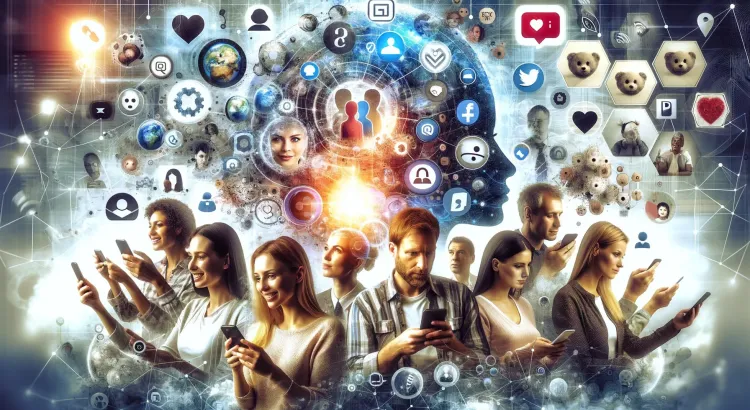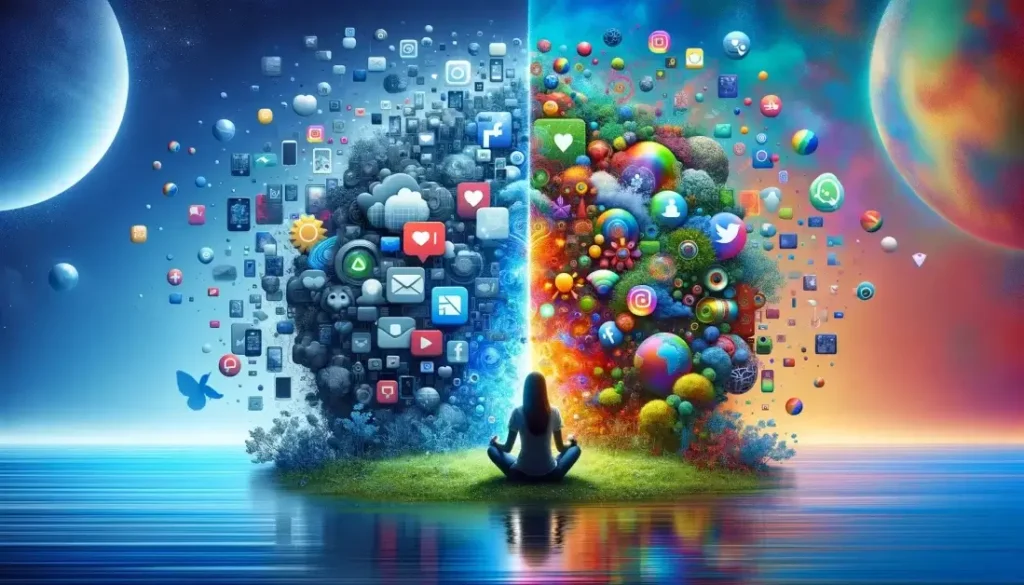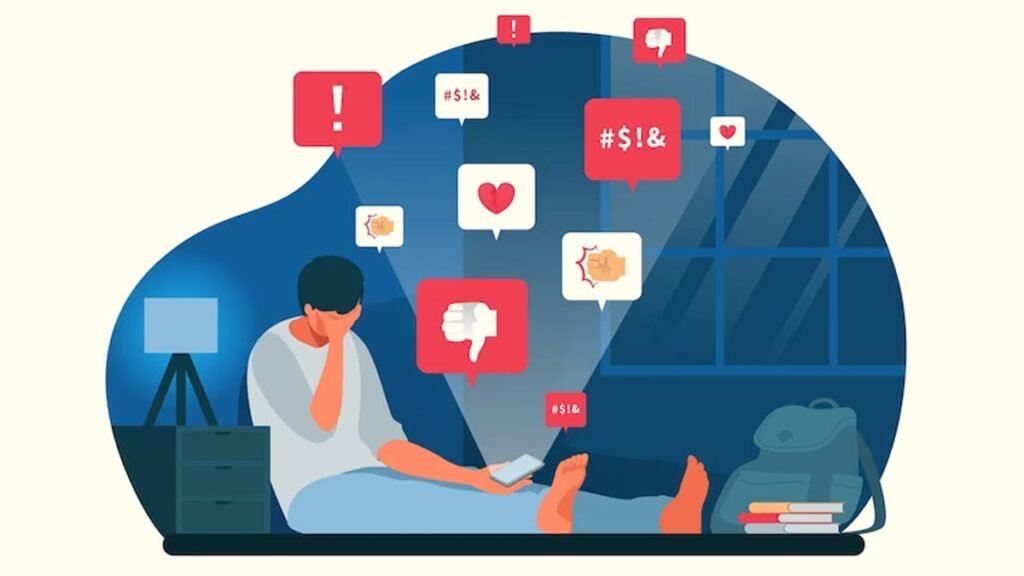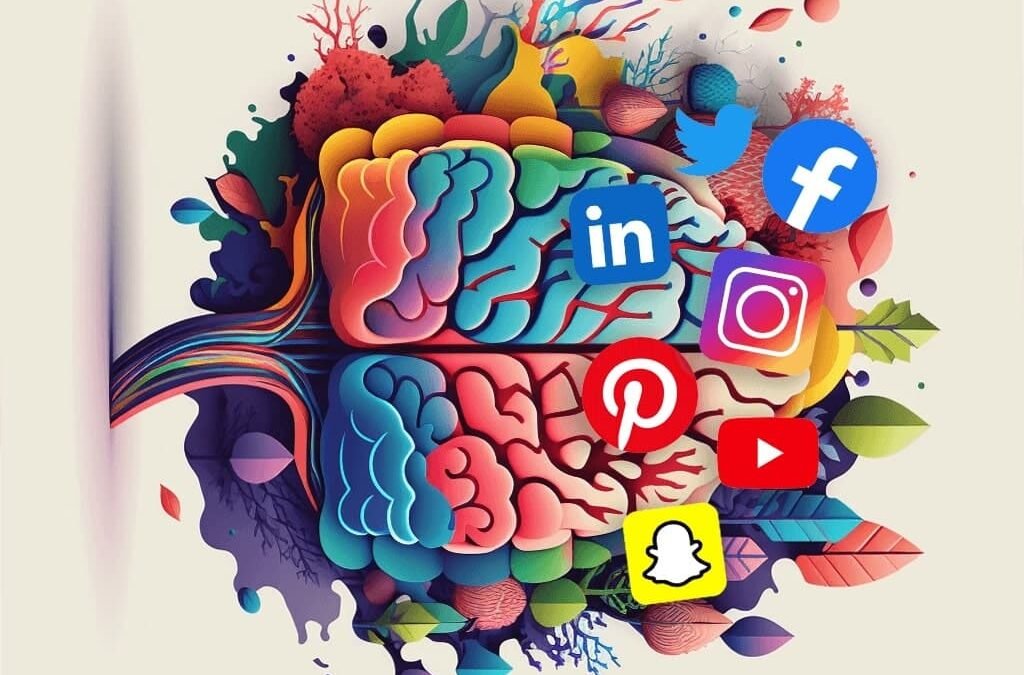using of social media for the best way to stay in contact with eachother, but using it constantly is harmful for both physical and mental health.
Table of Contents

How does social media affect mental health?
Many people in today’s society depend on social media sites to help connect with others. Social media will never be able to completely replace face-to-face human connection, given the fact that each has advantages. Only in physical contact with other people can you cause the hormones that lower stress and promote happiness, health, and hope. Social media is supposed to bring people together, so what everyone believes goes. On the other hand, constant use of technology can cause mental health problems including anxiety and depression in addition to feelings of isolation and loneliness.
If you’re feeling lonely, unsatisfied, or angry and spending too much time on social media, it might be time to review your online behaviours and devise a new strategy.
The Pros of Social Media
Social media virtual interaction can still be very beneficial to your wellness and help you stay connected, even though it doesn’t offer the same psychological advantages as in-person conversation.
With social media, you can:
- Maintain contact and remain informed with friends and family who live far away.
- Make new friends and join groups; connect with people who have similar goals or interests. Participate in or advocate for honourable causes; bring significant issues to light.
- Seek out or provide emotional support when things are hard.
- If you are a member of an underrepresented group, reside in a remote place, have limited independence, or have social anxiety, make sure you have important social and professional connections (such as online therapy).
- Seek a way to express yourself creatively and personally.
- Find reliable sources of knowledge and education (with caution).

The cons of social media
The long-term effects of using social media, whether favourable or harmful, have not been fully investigated because it is still a relatively new technology. However, a strong link has been found by several researchers between extreme social media use and an increased risk of suicidal, self-harming, lonely, anxious, and depressive thoughts. Social media could encourage unpleasant experiences like:
- Inadequacy about your life or appearance.
- Depression and anxiety.
- Isolation
- Self-absorption
- Cyberbullying
Signs that social media is impacting your mental health
Since every person is different, there is no set amount of time spent on social media, the number of updates checked, or the number of posts made that should be used as a sign that your use is getting harmful. Instead, it relates to your reasons for using social media as well as how time spent on it affects other areas of your life and your mood.
These include:

Spending more time on social media than with real-world friends.
A major component of your offline social engagement is now replaced by using social media. You get the need to check social media while out with friends, possibly due to the idea that others are having more fun than you.
Comparing yourself unfavourably with others on social media.
You have a poor opinion of yourself or your body. You might even engage in abnormal eating practices.
Experiencing cyber bullying
Alternatively, you may be concerned that you have no control over what others post about you.
Engaging in risky behaviour to gain likes
Taking a chance to receive likes, shares, or favourable comments on social media. You use your phone while driving or in other risky situations, engage in harmful pranks, publish embarrassing content, harass others online, and so on.
Suffering from sleep problems
When you wake up early in the morning to check social media updates as well as sleep late in the night to use social accounts, the lights from phones and lack of sleep properly can cause physical and mental health issues.
How to change your social media use
The following measures can help you change your behaviour if you believe that your usage of social media has turned into an addiction or that it is increasing your feelings of loneliness, anxiety, or FOMO:
- Reduce time online
- Change your focus
- Spend more time with offline friends
- Express gratitude
- Helping a child or teen with unhealthy social media use

